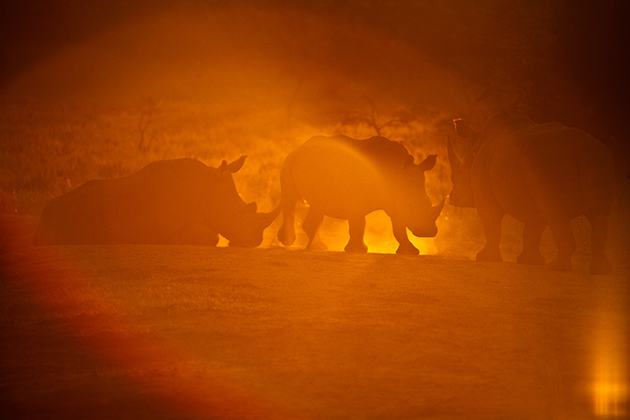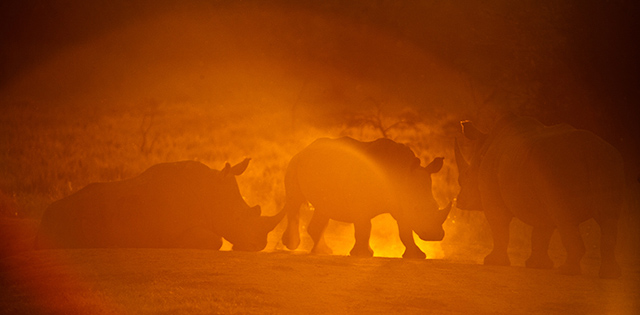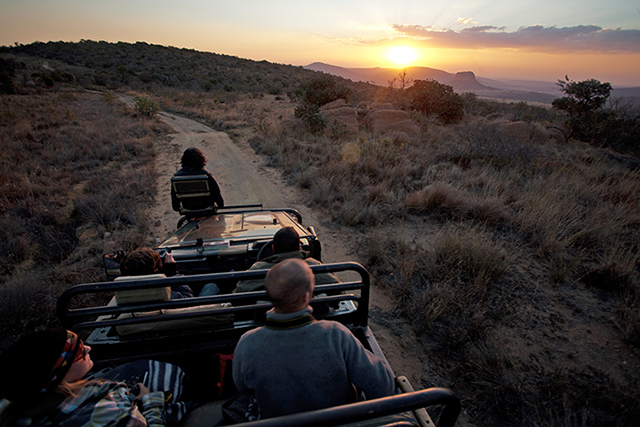Morty Ortega grew up 12,000 feet above sea level in a now-abandoned copper mining town in the rural mountains of Chile. Today an associate professor in the College of Agriculture and Natural Resources, he continues to visit remote parts of the globe. In addition to returning to Chile annually to research the social behavior of large Patagonian mammals in Torres del Paine National Park, Ortega travels three times a year deep into the South African bush, where he brings groups of UConn students enrolled in his African field ecology course. His three sons, as well as his wife, are all either alums or current students of UConn.
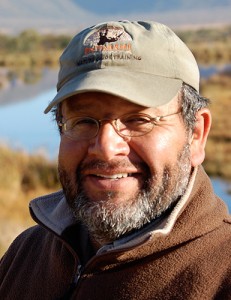
1. How would you describe your approach to teaching?
There are several things that I tell students: They need to take risks. They need to travel. They need to get to know this planet. I try to provide a positive message, especially when we talk about the environment. I encourage everyone to get to know the planet, because the more we know of it, the better we will do for it.
2. What is your favorite book?
I’m always reading two or three books. The latest book I read was The Last Rhinos [by Lawrence Anthony]. It’s one of my new favorites. Memoirs from Pablo Neruda, the Chilean poet. Of the many books that I’ve read, those are two very important books for me.
3. How long have you ever gone without running water or electricity?
Two years, when I was in Patagonia, before I came to the States.
4. What’s your best travel advice?
Pack light. Do some planning, but not too much. Don’t overplan it, because if you do, you’ll get frustrated when things don’t go your way. Be completely open-minded. Be locally sensitive to the culture. If you can speak the local language, even better. Always smile and be open to talk, and that’s probably going to carry you far.
5. Why is getting out of the typical classroom setting so important to your teaching?
The way that we’ve been taught since we were kids was that pretty much anything there is to learn is in books. Nowadays, people say anything that you want to learn about is on the Internet. Well, there are a few things that are not. The only way to learn about some of these things is to go out and see them. Until you see your very first lion in the wild, you don’t understand their magnificence. You may have seen them many times on TV on “Animal Planet.” You could have read about them in an ecology book about how a predator-prey relationship works. But the first time you hear a lion roaring or see a cheetah hunting, you will never forget it.
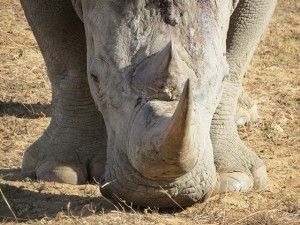
6. Are you an optimist or pessimist when it comes to environmental conservation?
Optimist – 100 percent. This planet is too beautiful to just give up. We are always showing the obvious negative side of what we’re doing to the planet. Let’s look at the beautiful side. We really need to try to learn more about this planet. The more we know about something, the more we care.
7. In 2008, you received UConn’s Outstanding Faculty Advisor Award. How do you advise students on preparing for a career?
I tell them to think about a house. If you want to build a house, you come up with some sort of structure. You say it’s going to have this and this and this – including the little white picket fence outside. Now think about [your college career] in the same way. These four years are going to be the foundation. Every course you take is a brick. Every network you create is a brick. Every opportunity you have to do something in the field is a brick. After you have accumulated these bricks for four years, you can have a very solid foundation – or you can have a really nice pile of bricks. It really depends on you.
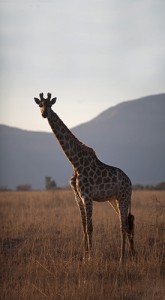
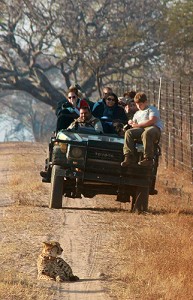
8. What is your favorite part of teaching?
Getting in touch with the students. Teaching is a two-way street. You teach concepts, but you learn from the students.
9. What is your favorite place in the world?
For me, there is not really any one place. I think every place on this planet is my favorite. If I had to retire, it’s probably going to be to about 20 places. Cape Town [South Africa] would be one of them. A couple of places in Patagonia. I’d have to keep moving around because there are too many beautiful places.
10. If you could do any other job, what would it be?
An astronaut, so I could see from outside this beautiful planet of ours.
Explore the South African bush through the eyes of UConn students who have traveled to a “classroom” like no other. Watch the video at s.uconn.edu/africa.
